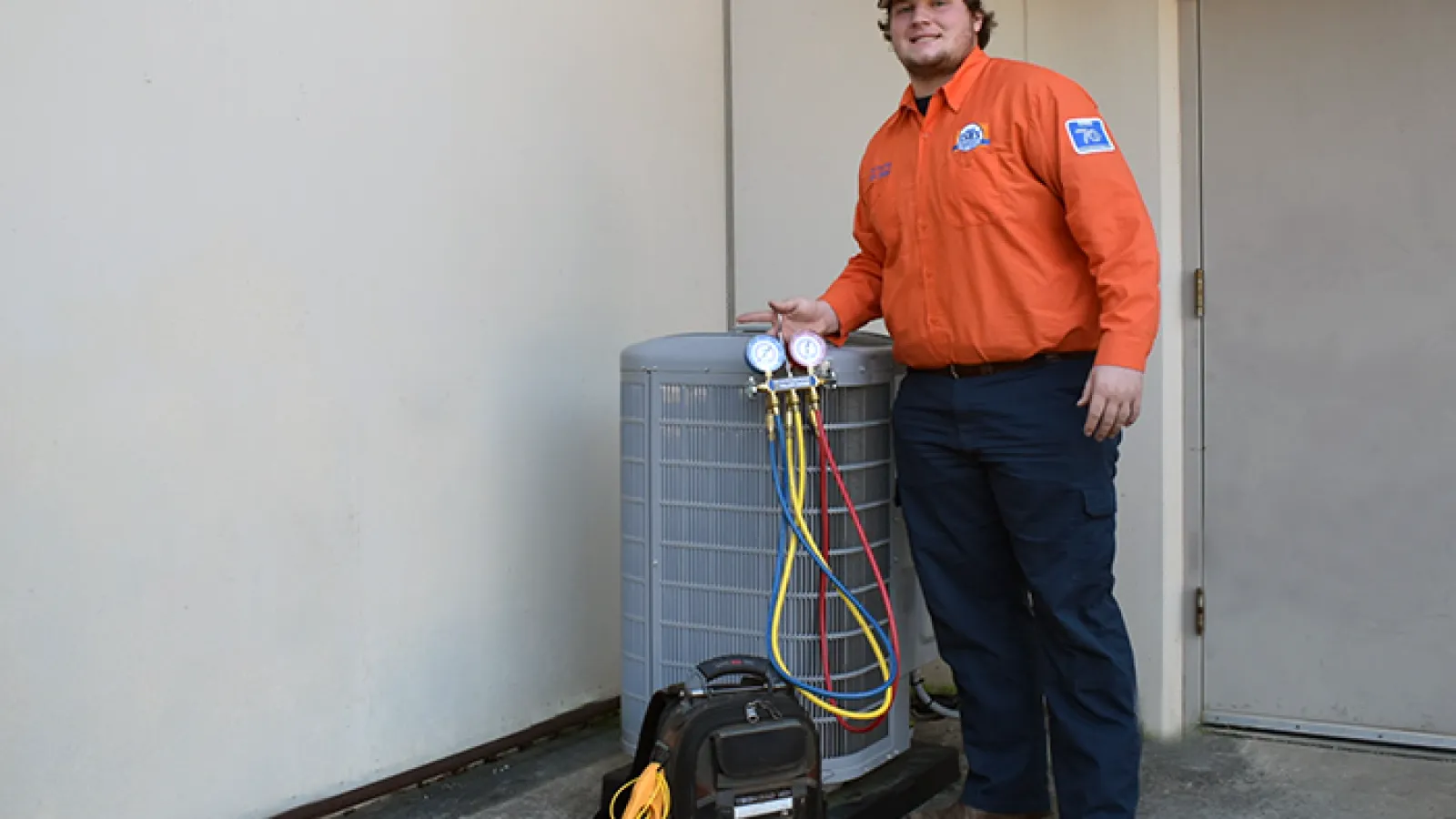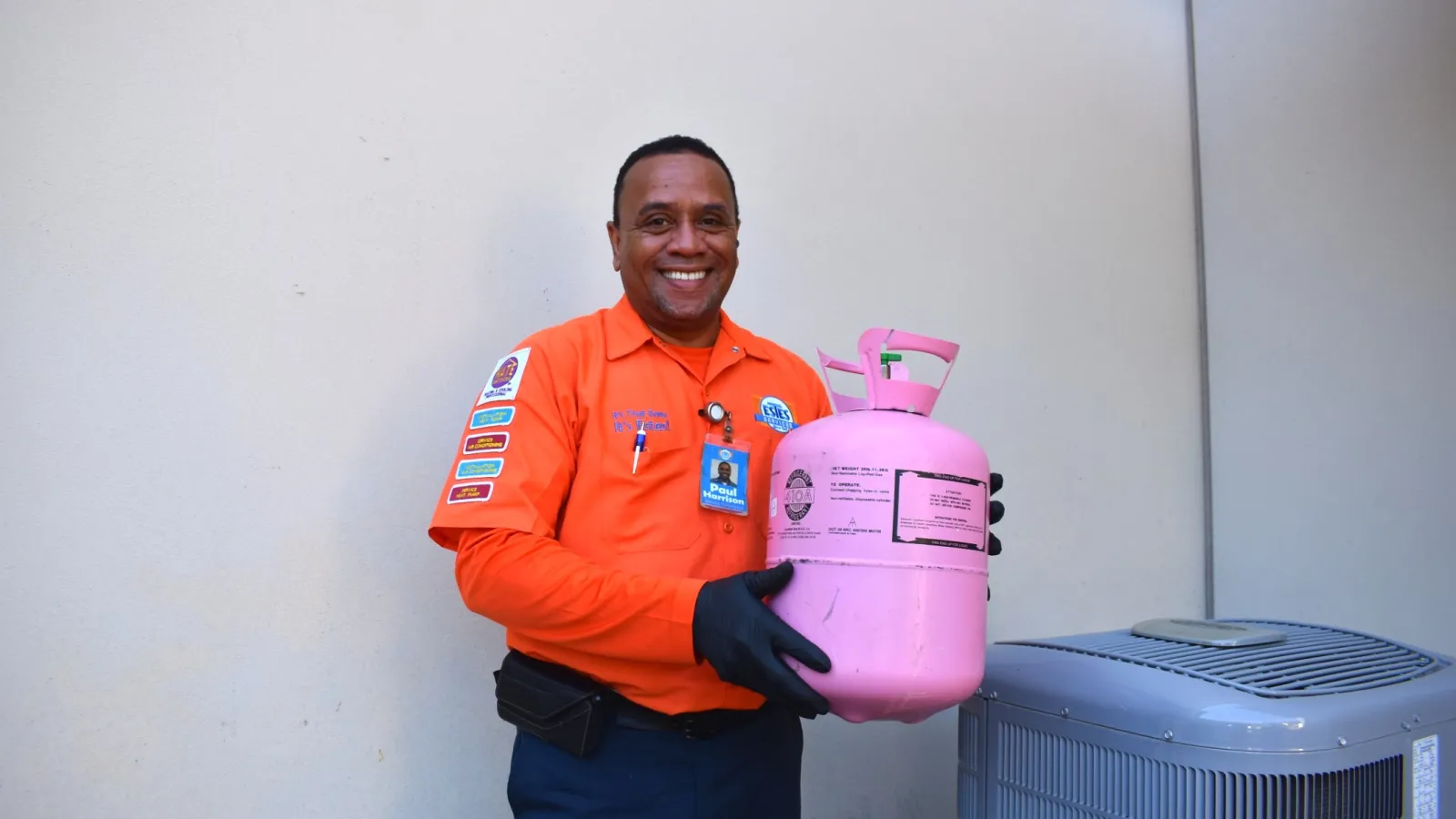Is your Atlanta area home due for a new cooling system this year? If so, it’s time to consider your equipment options. Yes, we said options – the standard air conditioner isn’t your only choice! Before you buy, consider the pros and cons of having a heat pump installed over a central air conditioner.
How Do Air Conditioners and Heat Pumps Work?
When it comes to cooling, it’s hard to tell the difference between a heat pump and an air conditioner. That’s because both systems operate in an identical manner. Both systems have indoor and outdoor equipment – the outdoor heat pump is connected to an indoor air handler, and the outdoor air conditioner is connected to an indoor air handler or furnace. The cooling process is as follows:
- Air moves from the living areas into return air vents and travels within the ducts to the evaporator coil, which is housed within the furnace or air handler. The evaporator coil holds refrigerant that absorbs heat from air that passes across it. Heat is removed from the air supply, and the furnace or air handler’s blower fan circulates the newly cooled air back into your living areas.
- As the evaporator coil absorbs heat, the refrigerant converts from a liquid to a gas. The heat absorbed by the refrigerant must be released, so the refrigerant travels through the refrigerant lines to the outdoor heat pump or air conditioner. The compressor keeps refrigerant circulation moving.
- At the outdoor unit, the refrigerant first enters the compressor. The compressor reduces its volume to raise both its pressure and temperature. The refrigerant becomes a superheated vapor.
- The refrigerant moves into the coils of the outdoor heat pump or air conditioner to release its heat. A fan within the outdoor unit moves air over these coils so it can pick up the heat being released. As the refrigerant gives off heat, it cools and condenses into a liquid again. Once complete, refrigerant is circulated back to the indoor unit to repeat the process.
The key difference between a heat pump and an air conditioner system is their capabilities – an air conditioner only cools, while an air-source heat pump heats and cools. To heat the home, the system simply runs in reverse, extracting heat from the outdoor air and transferring it to the indoor air supply.
Pros and Cons of Heat Pumps and Air Conditioners
A heat pump vs air conditioner has certain differences that make one more preferable over the other system type to homeowners. Which way you side depends on which aspects you place the most value and importance on. Both provide great cooling for Atlanta homes, but some homeowners choose heat pumps while others prefer air conditioners.
Heat Pump Pros
- Performs both heating and cooling functions
- More energy-efficient heating than furnaces
- Costs less to run
Heat Pump Cons
- Typically costs a little more to purchase and install
- Doesn’t last as long because they run year-round (12 to 15 years on average)
- More likely to suffer breakdowns because they operate all year long
Air Conditioning System Pros
- Usually has slightly cheaper upfront costs (purchase and installation)
- Typically lasts longer because the system only runs for half the year (15 to 20 years with good maintenance)
- Less likely to experience breakdowns due to limited operation throughout the year
Air Conditioning System Cons
- Only cools; cannot heat
- Less energy efficient overall when paired when a furnace for heating
- Costs more to operate
Heat Pump Vs Air Conditioner: Which Will You Choose?
Making a selection between an air conditioning system and a heat pump is largely a personal choice. You can’t consider cooling power and efficiency alone, but think about how each type of system functions for the overall comfort of your home in both heating and cooling seasons. The experts at Estes Services lend their knowledge to help you make an informed decision for your household. Contact us today to schedule a consultation with one of our cooling and heating technicians.


